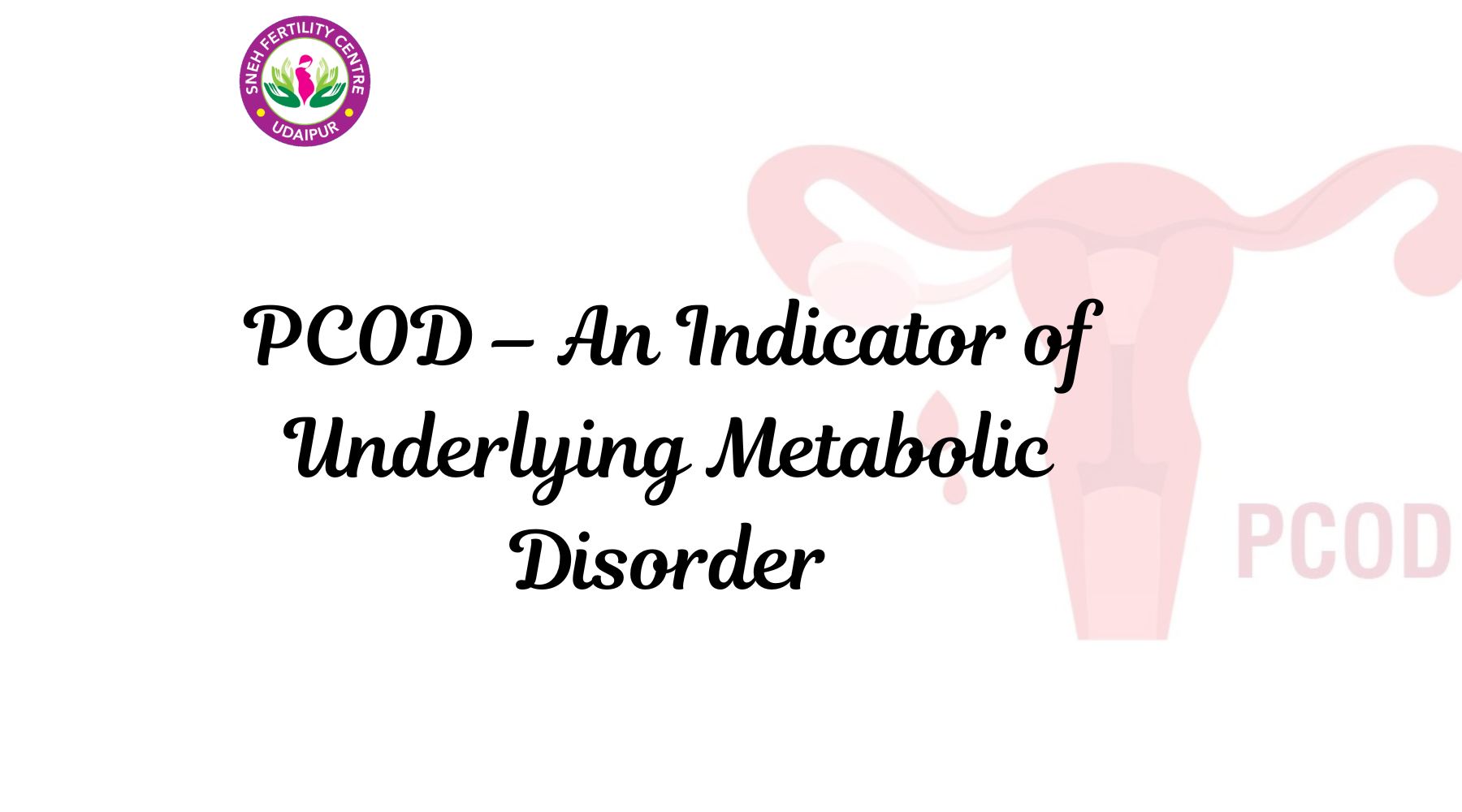Polycystic Ovarian Disease (PCOD) is one of the most common hormonal disorders affecting women. While it is widely known for causing irregular periods, acne, weight gain, and fertility issues, many do not realize that PCOD is often linked to an underlying metabolic disorder.
At Sneh Fertility & Urology Center, we emphasize the importance of early diagnosis and holistic management to prevent complications and improve overall health.
Understanding PCOD and Its Metabolic Link
PCOD is caused by hormonal imbalances that affect ovulation and lead to the formation of multiple small cysts in the ovaries. However, beyond reproductive health, PCOD is strongly associated with metabolic dysfunction, increasing the risk of:
✔ Insulin Resistance & Type 2 Diabetes
✔ Obesity & Difficulty Losing Weight
✔ High Cholesterol & Heart Disease
✔ Hypertension (High Blood Pressure)
✔ Fatty Liver Disease
These metabolic disturbances make PCOD more than just a reproductive issue—it requires comprehensive care to manage both hormonal and metabolic health.
How Metabolic Disorders Contribute to PCOD?
1. Insulin Resistance
- The body produces insulin to regulate blood sugar, but in PCOD, cells become resistant to insulin, leading to higher insulin levels.
- Excess insulin stimulates higher androgen (male hormone) production, causing irregular periods, acne, and excessive hair growth (hirsutism).
2. Obesity & Fat Accumulation
- Many women with PCOD struggle with weight gain, especially around the abdomen.
- Increased fat storage worsens insulin resistance, making it harder to control hormonal imbalances.
3. High Cholesterol & Cardiovascular Risks
- PCOD is linked to high LDL (bad cholesterol) and low HDL (good cholesterol) levels.
- This increases the risk of heart disease, stroke, and high blood pressure.
4. Fatty Liver Disease
Insulin resistance in PCOD can lead to the accumulation of fat in the liver, increasing the risk of non-alcoholic fatty liver disease (NAFLD).
Managing PCOD & Metabolic Disorders
PCOD requires a multidisciplinary approach that includes dietary changes, exercise, medications, and lifestyle modifications.
1. Healthy Diet
- Increase fiber intake – Whole grains, vegetables, and legumes help regulate blood sugar.
- Choose healthy fats – Avocados, nuts, and olive oil improve insulin sensitivity.
- Reduce processed carbs & sugar – Helps prevent insulin spikes.
2. Regular Exercise
- Strength training & cardio improve insulin sensitivity.
- Yoga & mindfulness help regulate hormones and reduce stress.
3. Medications & Supplements
- Metformin is commonly prescribed to improve insulin resistance.
- Inositol & Vitamin D support hormonal balance.
4. Regular Health Check-ups
- Monitor blood sugar, cholesterol, and hormone levels to detect metabolic risks early.
- Consult a gynecologist & endocrinologist for personalized treatment.
Expert PCOD Management at Sneh Fertility & Urology Center
At Sneh Fertility & Urology Center, we offer comprehensive PCOD care with advanced diagnostics, hormone therapy, and lifestyle management to help women regain their health and well-being.






